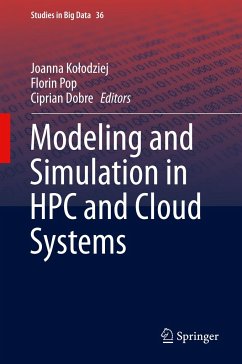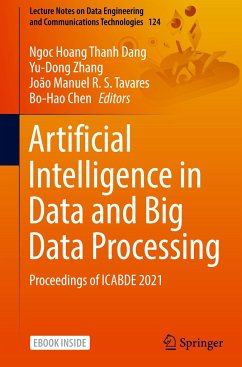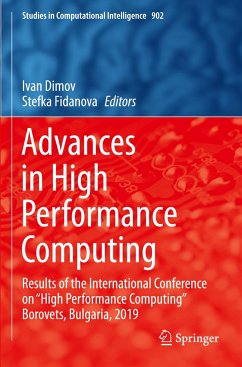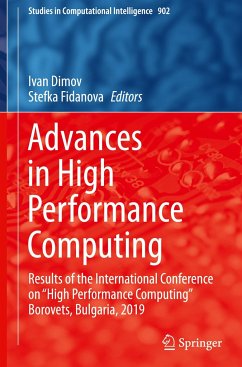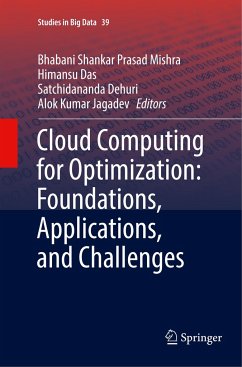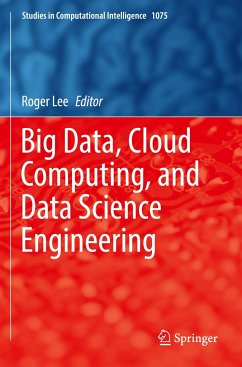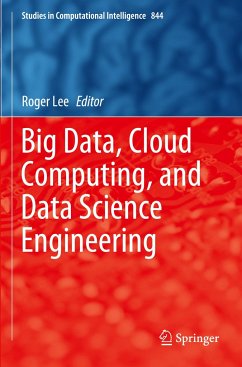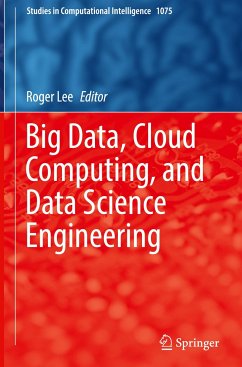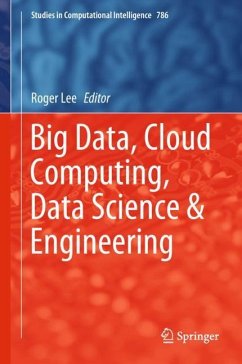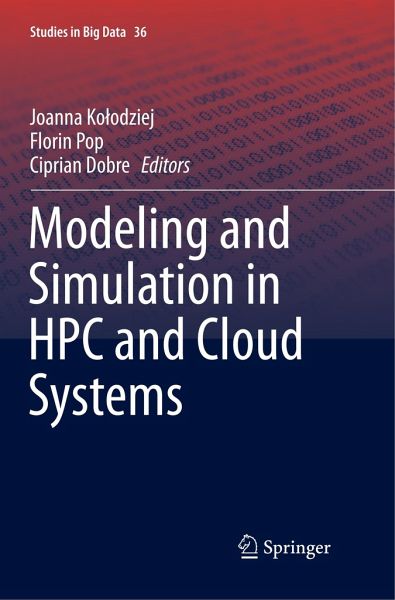
Modeling and Simulation in HPC and Cloud Systems
Versandkostenfrei!
Versandfertig in 6-10 Tagen
38,99 €
inkl. MwSt.

PAYBACK Punkte
19 °P sammeln!
This book consists of eight chapters, five of which provide a summary of the tutorials and workshops organised as part of the cHiPSet Summer School: High-Performance Modelling and Simulation for Big Data Applications Cost Action on "New Trends in Modelling and Simulation in HPC Systems," which was held in Bucharest (Romania) on September 21-23, 2016. As such it offers a solid foundation for the development of new-generation data-intensive intelligent systems.Modelling and simulation (MS) in the big data era is widely considered the essential tool in science and engineering to substantiate the ...
This book consists of eight chapters, five of which provide a summary of the tutorials and workshops organised as part of the cHiPSet Summer School: High-Performance Modelling and Simulation for Big Data Applications Cost Action on "New Trends in Modelling and Simulation in HPC Systems," which was held in Bucharest (Romania) on September 21-23, 2016. As such it offers a solid foundation for the development of new-generation data-intensive intelligent systems.
Modelling and simulation (MS) in the big data era is widely considered the essential tool in science and engineering to substantiate the prediction and analysis of complex systems and natural phenomena. MS offers suitable abstractions to manage the complexity of analysing big data in various scientific and engineering domains. Unfortunately, big data problems are not always easily amenable to efficient MS over HPC (high performance computing). Further, MS communities may lack the detailed expertise required to exploit the full potential of HPC solutions, and HPC architects may not be fully aware of specific MS requirements.
The main goal of the Summer School was to improve the participants' practical skills and knowledge of the novel HPC-driven models and technologies for big data applications. The trainers, who are also the authors of this book, explained how to design, construct, and utilise the complex MS tools that capture many of the HPC modelling needs, from scalability to fault tolerance and beyond. In the final three chapters, the book presents the first outcomes of the school: new ideas and novel results of the research on security aspects in clouds, first prototypes of the complex virtual models of data in big data streams and a data-intensive computing framework for opportunistic networks. It is a valuable reference resource for those wanting to start working in HPC and big data systems, as well as for advanced researchers and practitioners.
Modelling and simulation (MS) in the big data era is widely considered the essential tool in science and engineering to substantiate the prediction and analysis of complex systems and natural phenomena. MS offers suitable abstractions to manage the complexity of analysing big data in various scientific and engineering domains. Unfortunately, big data problems are not always easily amenable to efficient MS over HPC (high performance computing). Further, MS communities may lack the detailed expertise required to exploit the full potential of HPC solutions, and HPC architects may not be fully aware of specific MS requirements.
The main goal of the Summer School was to improve the participants' practical skills and knowledge of the novel HPC-driven models and technologies for big data applications. The trainers, who are also the authors of this book, explained how to design, construct, and utilise the complex MS tools that capture many of the HPC modelling needs, from scalability to fault tolerance and beyond. In the final three chapters, the book presents the first outcomes of the school: new ideas and novel results of the research on security aspects in clouds, first prototypes of the complex virtual models of data in big data streams and a data-intensive computing framework for opportunistic networks. It is a valuable reference resource for those wanting to start working in HPC and big data systems, as well as for advanced researchers and practitioners.





